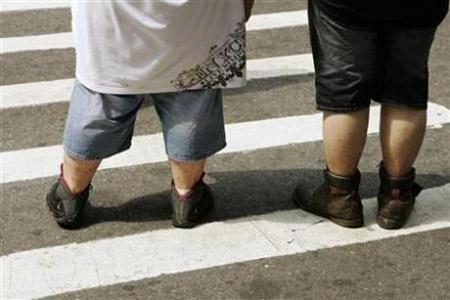Obesity linked to higher risk of kidney stones
2010-01-19 09:25 BJT
NEW YORK - Obese people are more likely to develop kidney stones than normal weight individuals, but severe obesity doesn't seem to further increase risk, research in the Journal of Urology shows.
 |
| Obese people are more likely to develop kidney stones than normal weight individuals, but severe obesity doesn't seem to further increase risk, research in the Journal of Urology shows.(File photo) |
Kidney stones are solidified deposits of minerals and acid salts. "Passing" the stones in the urine can be extremely painful. Rarely, a person will require surgery or other types of treatment if they are unable to pass the stone on their own.
Studies have shown a rise in kidney stone disease paralleling the increase in obesity, Dr. Brian R. Matlaga of Johns Hopkins University in Baltimore and his colleagues write. It's unclear why weight would affect kidney stone rates, although researchers have a number of theories involving different levels of substances in the blood among the obese.
Matlaga's team analyzed 2002-2006 records for more than 95,000 people included in a national private insurance database.
The researchers identified 3,257 people with kidney stones. Men were twice as likely as women to have kidney stones, while the risk of stones increased with age.

 Mail
Mail Share
Share Print
Print


 Video
Video









 2009 China Central Television. All Rights Reserved
2009 China Central Television. All Rights Reserved